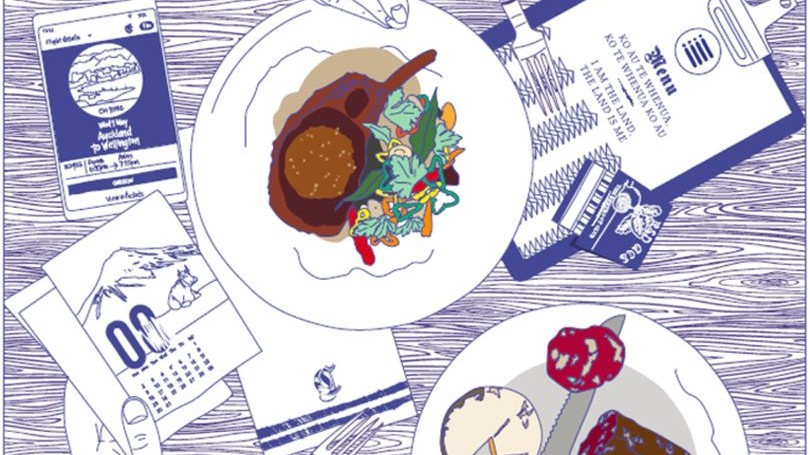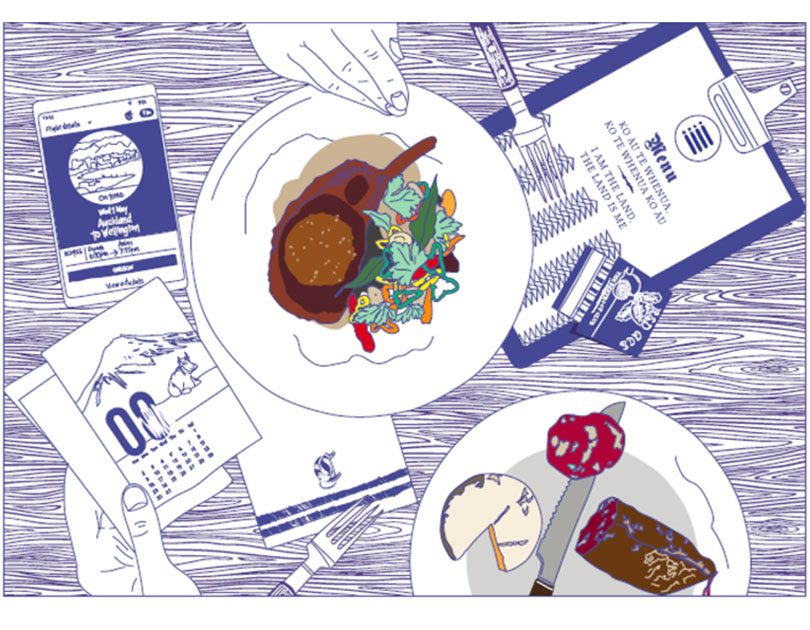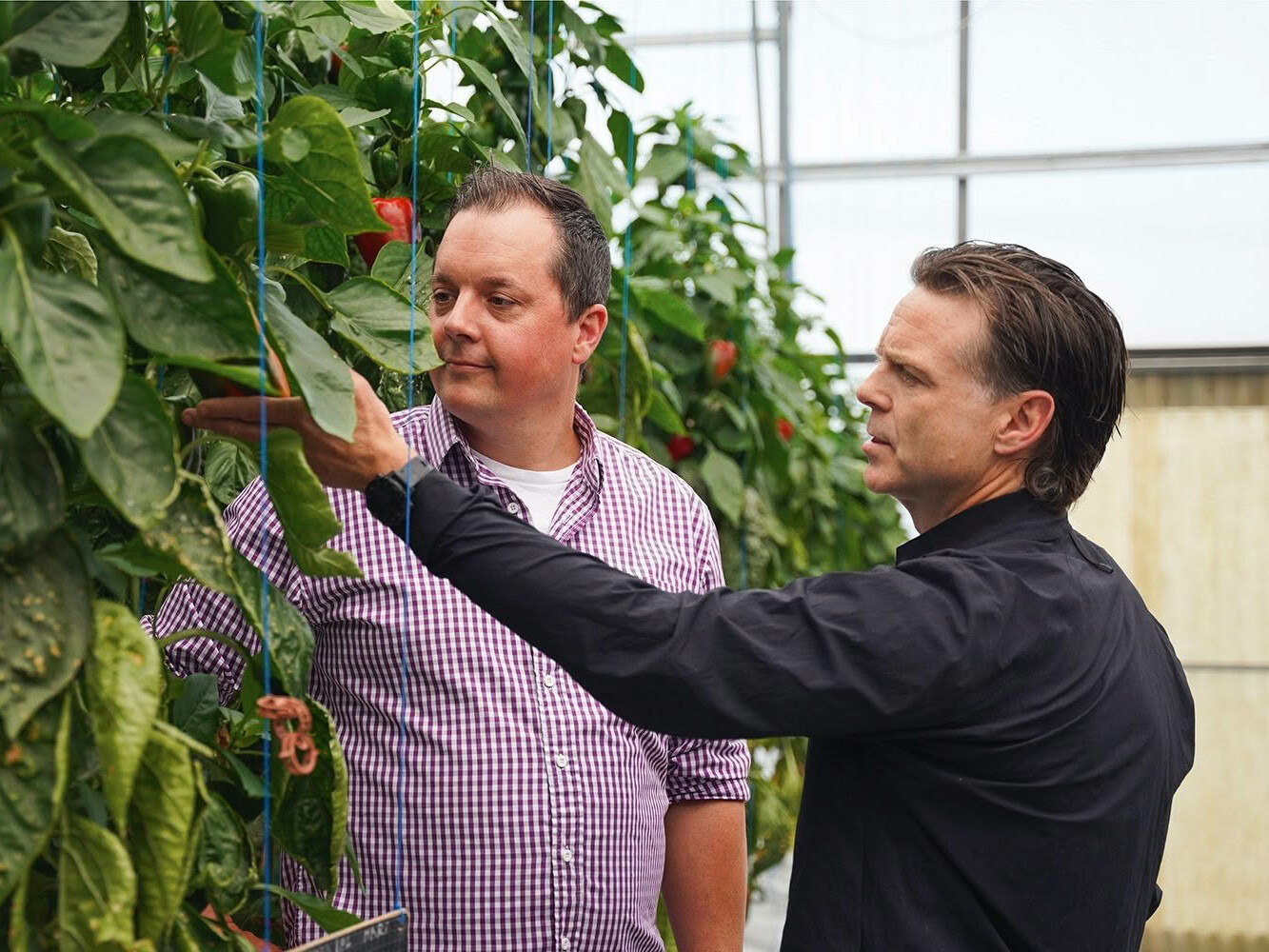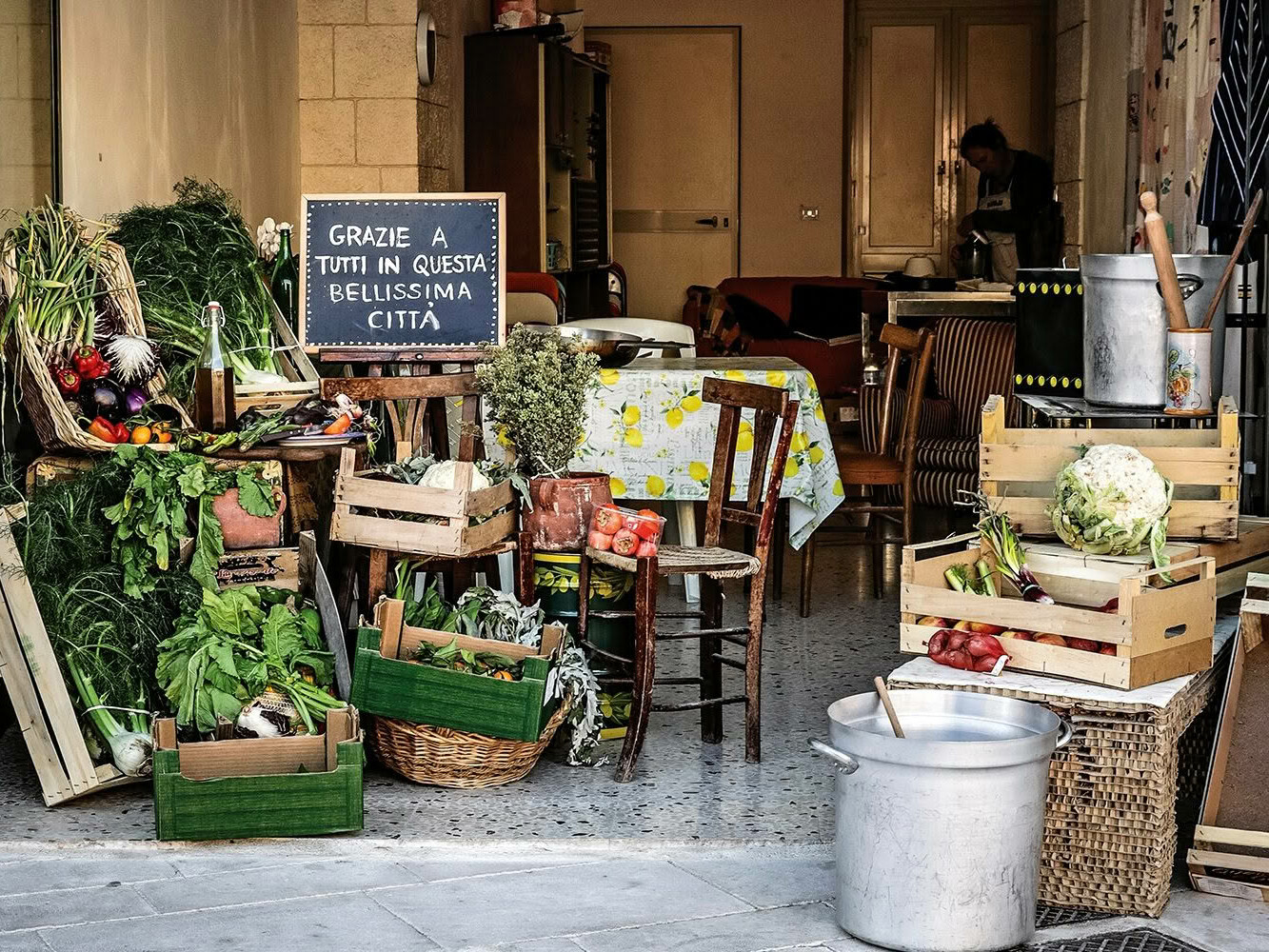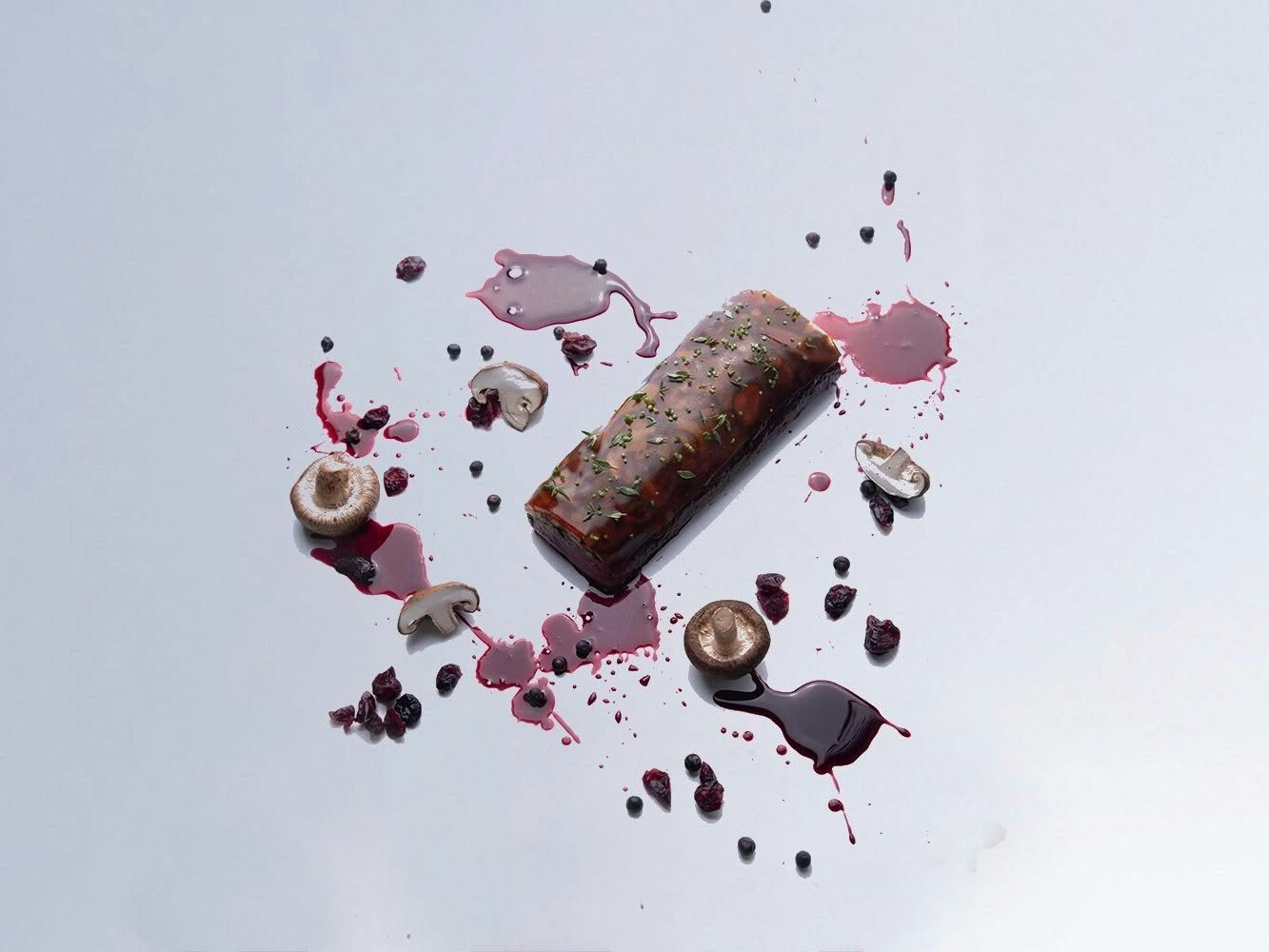What needs to happen next in the New Zealand food story? Lauraine Jacobs presents views of the future.
During the lockdown, many of us stopped at home with little else to do but cook, eat and celebrate our amazing New Zealand food (and be thankful for our valued essential workers). The joy we found in our kitchens was on public display, with copious proud socialmedia posts of exciting dinners and homebaked sourdough breads.
For 150 years, New Zealand has steadily developed an economy focussed on the production, consumption and export of delicious food. However, the dark underbelly of food insecurity was also revealed during COVID-19. While more families than ever before cried out for food parcels and assistance, food was spoiled and wasted through inadequate distribution systems, small producers were shut out as farmers’ markets and small food stores closed and our vast hospitality industry was shuttered. Food exports thankfully continued to roll on, promising economic lifelines for the next few years.
With such attention turned on our food and its possibilities, we asked four sector leaders to share thoughts and suggestions on how to build on this wonderful resource so that New Zealand becomes a food nation we can be proud of on the global stage.
Tracey Bayliss, Regenerative farmer and champion of small food producers
Late last year Tracey Bayliss established a small farm shop at Te Uku, near Raglan, to give locals the opportunity to buy good, healthy food from selected farms and artisan food producers in her district. Fresh vegetables from two growers, local cheese, organic free-range eggs, homemade preserves, and nut butters sat alongside Grandad’s Beef from her family’s regeneratively farmed property. Passionate about growing good healthy food, she wants everyone to understand just what this means.
“If people knew how some of their food was grown, they wouldn’t eat it,” she says. “But there are many good food stories out there as hundreds of common-sense farmers who care about the land like we do want to farm in a manner that ensures the land will be productive for many generations to come.”
With the COVID-19 shutdown, her little store had to close, along with small butchers and many other excellent businesses throughout the country. Bayliss still hasn’t re-opened (at the time of writing); stumbling blocks include myriad regulations that are imposed on the food system, including farms.
“The big industrialised farm systems may need these rules, but they just don’t work for the small farmer, the good, honest guys and farm heroes like my dad. There’s no such thing as one system that suits all farms.”
Bayliss thinks that the COVID-19 lockdown made people more aware of their food, gave everybody time to think and to appreciate the calm without the constantly busy, rushed lives we were living. She knows that if our systems are to change, they have to be consumer driven. It is important we all seek healthy, nutritious food – food that’s produced directly for the consumer, without all the layers of ‘clipping the ticket’ that raises prices to unaffordable levels.
There’s hope, she points out, as she’s intent on solving small farmers’ problems such as sending small numbers of animals to the works through a system that demands and benefits those ‘ticket-clippers.’ It broke her heart to see just one or two of her animals loaded onto a truck, taken away to the works and then killed and processed by others.
She’s been working with the Ministry of Primary Industries (MPI) to approve a mobile abattoir for the farm and has found a mobile meatpacker. From July she will be able to supply her lovingly raised beef, aged for at least two weeks, direct to caring and conscious consumers. Her next challenge may be distribution: it will be easy enough to deliver meat around the Waikato, but not so simple further afield.
Bayliss and her father are forging and leading a regenerative path and they’re not alone. There’s a huge movement to regenerate New Zealand’s agricultural sector and she says it must be driven by both farmers and consumers. With climate change coming at us, our traditional regulatory environment must evolve, without suffocating our small farmers.
If we’re to eat healthy, fresh food – not food produced with chemicals on an industrial scale that can pollute the land and use up precious resources – it is our farmers whom we must value and trust. In the words of the past president of Federated Farmers, Katie Milne, “Farmers feed families.”
Rachel Taulelei, CEO of whānau-owned Māori food and beverage producer, Kono
Kono has a succession plan looking 500 years into the future, following the model of Te Ao Māori (respect for the natural and physical environment management of the land.) Taulelei explains that with this commitment to the long term, employees and members of the shareholding families are deeply and authentically engaged with the soil and the water, and regeneration and production of the land, providing an example to others.
COVID-19 lockdown, she says, gave everyone time to pause, to reflect and to think about the environmental impact of food production. Several considerations came up; for example, the homeless situation almost disappeared and, as a nation, we realised the importance of connectivity. We examined our personal situations, which led to considering the workplace and ultimately how we can act as a country.
Taulelei believes New Zealanders are caring people, and that internationally we are viewed as a ‘good country’ with good people who can be trusted. She wants to see us collectively live up to this perception and engage with consumers of our food and beverage products around the world who will highly value our products.
Learning from Māori tikanga (customs and practices) provides a kaleidoscope of warm and authentic values that we can all live up to and which will enable us, as a country, to prosper. Kono’s high-quality wine, fruit, crops and the seafood grown and harvested, reflect and carry these values and are well prized in both local and international markets. But, she warns, we need to respect the big ‘engines’ of the economy such as Fonterra, Silver Fern Farms and others who dictate a large part of our export earnings, have told the New Zealand story and have what she calls the “luxury of providing employment”.
Taulelei is also aware that as consumers we need to address the food insecurity that threatens sectors of our population. The answers to this problem will come through communities building by regionality and embracing good core values in all food practices. She cannot emphasise strongly enough that New Zealanders are good people and the time is right to engage the world with this thought underlying our collective philosophy.
Sarah Meikle, CEO Wellington Culinary Events Trust
“Our food system is now so complex that there’s no one answer. Our food industry is full of ‘doers’ but we need to document a plan centrally and unify our approach under one banner. We are telling our New Zealand food story but it’s like a book that will never end.
“We have great people sharing their version: stars such as Monique Fiso with her traditionally inspired Māori fare at her Wellington restaurant Hiakai; Ben Bayly seeking out amazing ingredients from around the country for his new Auckland city restaurant Ahi; and forager Charles Royal who, after leading a party of us into the bush near Rotorua, lit a fire and served up a sandwich crammed with foraged indigenous ingredients. There are many more who are modern and sophisticated in their ways and changing the food landscape. Food is part of our history and we need to recognise and tell these stories.”
Meikle recognises the huge opportunity to firmly put local food tourism as the centre of everything that’s on the current tourism table. One of the strengths of the great food in New Zealand is that it can be tied to place and taste. As she says, we might not know the place but we’re sure to know the taste. We’ve all grown up with roast lamb, but we need to get out on the farm, meet the farmers and then taste their lamb cooked over a roaring fire outdoors. Fish and chips is never quite as good or authentic as when devoured on the beach while overlooking the ocean. Or perhaps it might be the wild journey to Jackson Bay on the deep south west coast near Haast, for a crayfish cook-up right where the cray boats come ashore. The time is now for food and the place it is served in – and this must become central to all local tourism.
‘Pure New Zealand’, when conceived, was a brilliant unifying brand for promotion, and Meikle is adamant that we now need to coordinate another such strategy with a real food focus, connecting the dots between the work of everyone, not just government departments, in the campaigns and plans for tourism. Every Regional Tourism Organisation (RTO) must play a part as they hold a key role. All the strands should appeal to everyone, from the budget-conscious traveller through to those seeking luxury experiences.
Wellington’s Visa Wellington on a Plate (WOAP) is without doubt the most visible food festival on the New Zealand calendar. It has, in the past 10 years, attracted international stars to cook and showcase their cuisine, always using our food. With borders closed, Meikle and her team have reimagined the event, moving it to October. It will have a local focus by necessity, and everyone is excited about it. “It’s not just about gluttony,” says Meikle. She sees the opportunity to share delicious food, to provoke thought about our food, to explore why food is important and, above all, to have fun with food.
WOAP will not be solely about Wellington, but rather tied up with the food heritage of the whole country, with conversations about food, female chefs, the connection to the arts and, hopefully, making food accessible to all. A great point for the food folk of our country to collectively work from.
Vicki Ravlich-Horan, Chairperson of Waikato Food Inc and storyteller through her magazine, Nourish
“COVID-19 has thrown up the rhetoric that as a nation we under-appreciate our homegrown and produced food,” Ravlich-Horan passionately declares. “Providing food during lockdown was deemed an essential service, but we observed all manner of threats to this premise. Small stores were closed, artisans and small producers were shut out, meanwhile the hungry collected more emergency food parcels than ever before. Restaurants were closed and the suppliers were left high and dry, some of whom will never recover.
“Too many of us do not value food and see it as a commodity or unimportant,” she points out. Living in the Waikato, one of our country’s great food bowls, she observes the use of, and destination for, some of the finest grass-fed milk in the world. “It leaves here as milk powder which has little worth to our region compared to the added value it could bring.”
And she wonders how relevant fine food is to many people. “When we were finally allowed to eat out again the cheap fast food chains were inundated – so sad.”
Her organisation, Waikato Food Inc, is willing and ready to forge ahead with plans to boost awareness and celebrate great food in the region. But she believes people haven’t valued the concept of travelling to discover new and exciting foods. A whole world awaits them as food tourism takes off. Other regions are well organised and obtain funding to promote awareness of local food and events but the luscious food-producing Waikato is not supported by either local or central government. “We do not need more bureaucracy, but rather a strategy to promote the work our farmers, producers and growers do. There are fine stories out there, foods to discover, connect with and relish. The economic value of supporting promotion would be easy to prove.”
Ravlich-Horan finally adds, “Remember when former prime minister Helen Clark took up the cause of the arts? What a difference that made to our national cultural scene. Maybe our current prime minister could continually champion local food production and food tourism. Just imagine that!” We couldn’t put it better than that, Vicki.
So where to next?
Every single New Zealander is a consumer and collectively we can act.
We need to seek out, support and buy directly from local farmers, local food artisans, farmers’ markets, small independently owned stores and wayside farm stands, and eat at restaurants and cafés that hold to this local, fresh philosophy. We can push and assist our food story where it matters most, as a vast assembly of thoughtful eaters who appreciate good local, seasonal food – food that’s proudly ‘made in New Zealand’. Forget about shopping in the supermarket aisles with those chemically laden products, and head to the fresh food sections. If you can’t find what you want, ask, ask again, and then ask again until stores eventually stock exactly what you want and need.
And to our government policy makers and ministries, we suggest that they identify, engage with and promote all good food producers, talking to each other and working together. Stop creating more bureaucracy and regulations that impede and stifle the small producer and the distribution systems. Celebration of food and food tourism is essential to telling the New Zealand story and enabling tomorrow’s economy. Memories of great tastes enjoyed on the road will be taken home and recreated, and will help our food systems to prosper and thrive. A dedicated, passionate Minister of Food could do wonders.
SEE MORE FROM CUISINE
Design File / Sara Bruce / Exhibit A / Auckland
The contents in a cold glass should be savoured. Having one superb…
When only the very best will do
How Bocuse d’Or Team New Zealand will meet the highest standards at…

